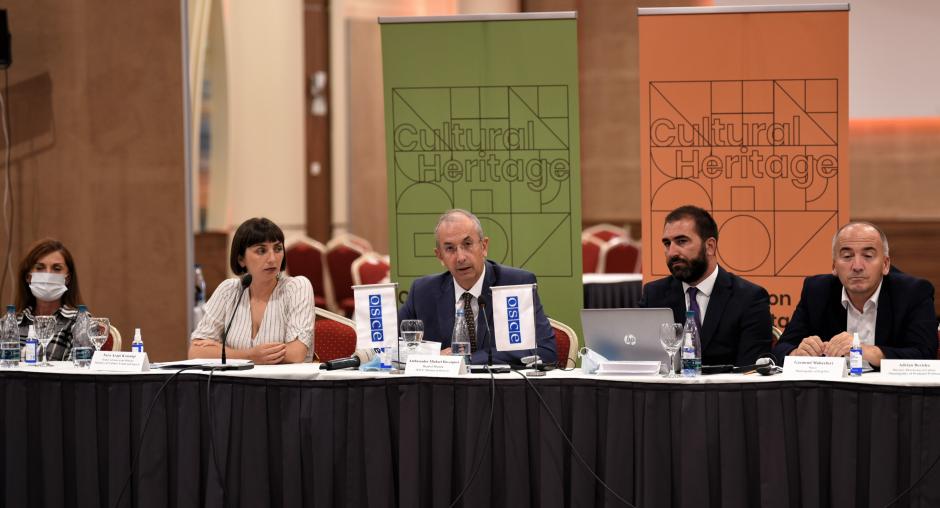OSCE Mission supports participatory tools to advance cultural heritage protection in Kosovo

PRISHTINË/PRIŠTINA, 30 July 2021 – The development and adoption of cultural heritage management plans is an important tool for enhancing the protection and preservation of cultural heritage sites, concludes a conference supported by the OSCE Mission in Kosovo today.
Cultural heritage management plans are tools that aim to protect the rich cultural heritage in Kosovo while also linking cultural heritage sites to sustainable development. The development of these plans requires an inclusive approach that fully takes into account cultural diversity and the views of all stakeholders and communities. When drafted in a participatory manner, the preparation of a cultural heritage management plan fosters inter-ethnic dialogue and understanding among communities, and contributes to trust-building, tolerance and social cohesion.
The OSCE Mission in Kosovo together with the Ministry of Culture, Youth and Sports organized today’s conference, which brought together a broad range of experts from government institutions, civil society and municipalities. Discussions focused on international standards and best practices in cultural heritage management plans, and helped to identify concrete milestones to be pursued jointly by the Mission and the Ministry for the selected pilot sites in Prishtinë/Pristina and Pejë/Peć municipalities.
The event built on the previous work of the Mission and the Ministry in developing the OSCE Guidebook on Standards for Drafting Cultural Heritage Management Plans, published in September 2020. Local experts will use the methodological approach set out in the guidebook to draft cultural heritage management plans for sites in Prishtinë/Pristina and Pejë/Peć, with the support of the Mission and the Ministry.
“Cultural heritage management plans are a valuable tool for advancing the protection, preservation and promotion of cultural heritage sites. Where these sites are viewed as key locations for economic and touristic development, there is a need to balance such development with the safeguarding of cultural heritage values, and the identity of communities. Management plans are the right tool to achieve this balance and preserve heritage values for future generations,” said Michael Davenport, Head of the OSCE Mission in Kosovo. He was joined in his concluding remarks at the conference by Pejë/Peć Mayor Gazmend Muhaxheri, and representatives of the Ministry of Culture, Youth and Sports and Prishtinë/Pristina municipality.
Davenport highlighted the recently adopted Management Plan for the Historic Centre of Prizren, which the OSCE Mission in Kosovo supported, and stressed that the process of developing the plan reflected the principle of inclusive participation and involved broad consultation with all stakeholders. “A successful management plan depends on an overall inclusive approach: not only institutions and experts, but also communities have to be consulted in order to create an instrument that will be fully implemented,” he said.
